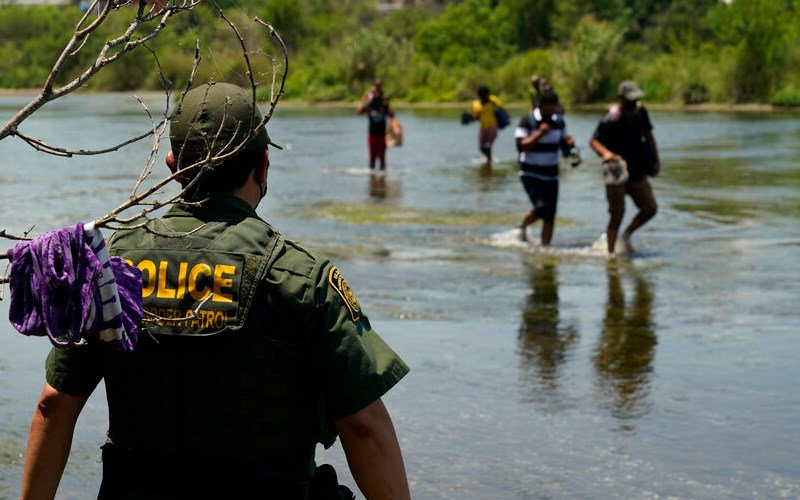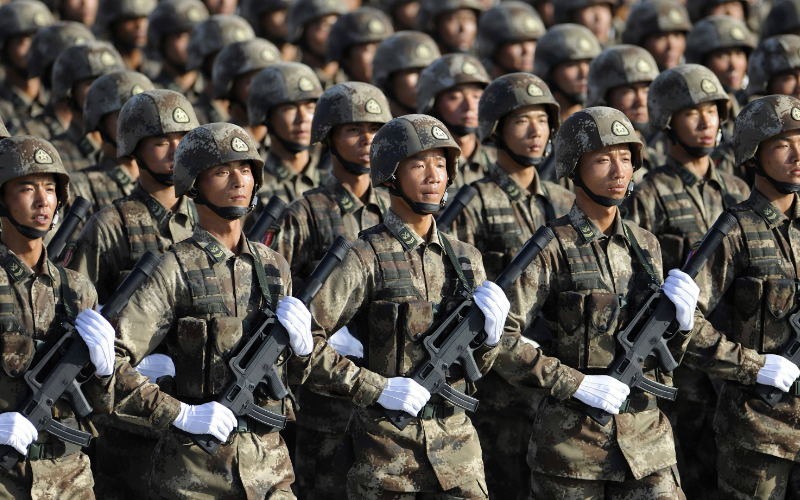According to data released in June, the number of people on the FBI’s terror watchlist hit a new record in FY 2023. By the end of May, Border Patrol had made 125 arrests at the southern border, which is 27 higher than the previous record-breaking year of 2022.
The number of encounters is increasing each year, particularly since President Joe Biden has been at the helm, and many are wondering about the terrorists who are never caught.
On that topic, American Family News spoke to Raymond Orzel, a financial investigator who focuses on international terrorist groups. After serving with the Terrorist Financing Targeting Center (TFTC), an agency within the U.S. Department of the Treasury, he says he is most concerned about the number of "gotaways" who were never put in handcuffs by a Border Patrol agent but successfully entered the U.S. anyway.

“With many of the ‘gotaways,’ there’s no paper trail,” he points out. “There are no visas, no airline tickets, or overt financial transactions to follow these people.”
U.S. Border Patrol agents encountered 2.2 million foreign nationals in 2022, the largest number on record, according to official figures compiled by the nonpartisan Congressional Research Service. When the fiscal year ended last fall, approximately 1 million of those encounters represented illegal aliens arriving here from “atypical” countries meaning they are not from Mexico or the Northern Triangle countries of El Salvador, Guatemala, and Honduras.
Like all others who cross illegally into the U.S. from Mexico, the drug cartels are being paid to bring them across. The cartels are happy to bring anyone across who pays, Orzel says, but he is concerned those payments are not coming from individuals but from U.S. enemies such as Iran and China.
“Foreign intelligence services are sending foreign intelligence officers into the U.S.,” he warns. “All it would take is a backpack full of cash to deal with the cartels."
In any other country, these bad actors would have to “wade their way through" the immigration and customs bureaucracy to step onto foreign soil but they are walking across the open southern border.
 “Chances are," Orzel tells AFN, "many are getting in undetected.”
“Chances are," Orzel tells AFN, "many are getting in undetected.”
In a May story, AFN described how the Border Patrol has apprehended 4,000 Chinese nationals to set a new record for the current fiscal year. It is possible China's State Security Ministry is mixing trained agents with civilians who are traveling north from Panama and are entering the U.S. from Mexico.
Orzel says he would not be surprised if there are Hezbollah operatives living among a host of supporters in Dearborn, Michigan, for example. Having the largest Muslim population in the U.S. per capita, operatives like this are a great concern to him.
But his thoughts are not limited to hardline Islamists.
“Every bad actor is a concern, especially when you consider what Russian intelligence was able to do in Miami,” he notes, referring to the 2020 incident when U.S. authorities learned of the planned assassination of a former Russian intelligence officer, Col. Alexander Poteyev.
Russia recruited a Mexican scientist, Hector Fuentes, to collect intelligence on Poteyev in Miami.
 “High-ranking officials in our government and intelligence community are really worried—as they should be—about the capabilities of foreign intelligence agencies within U.S. borders,” Orzel points out.
“High-ranking officials in our government and intelligence community are really worried—as they should be—about the capabilities of foreign intelligence agencies within U.S. borders,” Orzel points out.
Orzel shares a story from the book entitled The One Percent Doctrine. In the book, he says, former vice president Dick Cheney described the Bush administration's strategy of tackling terrorism following the 9/11 attacks. “If there's a one percent chance that Pakistani scientists are helping al-Qaida build or develop a nuclear weapon, we have to treat it as a certainty, in terms of our response,” Cheney said.
For Orzel, even a "fraction of a percent" represents a serious problem for U.S. security but the Biden administration is not taking the threat serious. So the terrorism expert says another 9/11 attack, or something even worse, is a possibility.







